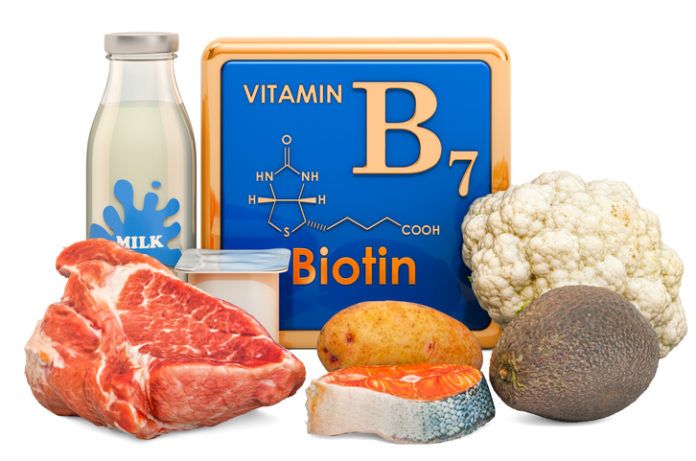A. Alice H. Lichtenstein, DSc, Stanley N. Gershoff Professor of Nutrition Science and Policy at the Friedman School and executive editor of Tufts Health & Nutrition Letter, answers: “Biotin is a member of the B vitamin family that receives relatively little attention. Deficiencies are rare and have never been reported in healthy individuals. The only cases of diet-induced biotin deficiency have been attributed to the habitual consumption of raw egg whites over a period of months to years. (Raw eggs contain a compound, avidin, that prevents biotin from being absorbed. Cooking destroys avidin.) Inadequate intakes are so rare that we don’t actually know how much biotin we need, hence, recommendations are in terms of Adequate Intake values. An Adequate Intake value represents a level assumed to cover the needs of the vast majority of the population. For adults, the value is 30 micrograms (ug) per day, for both women and men. In the U.S. intakes are estimated to range from 35 to 70 ug per day. Biotin in present in a wide range of foods, including organ meats, eggs, fish, meat, seeds, nuts, and certain vegetables (such as sweet potatoes). There are no data to indicate that subgroups benefit from greater intakes of biotin. Individuals who chronically take anticonvulsants should check with their healthcare provider.”
- #7213 (no title)
- About
- Cart
- Checkout
- Contact the Editor
- Contact Us
- Content restricted
- Customer Service
- Glossary
- Nutrition 101 – Glossary – J
- Nutrition 101 – Glossary – K
- Nutrition 101 – Glossary – L
- Nutrition 101 – Glossary – M
- Nutrition 101 – Glossary – N
- Nutrition 101 – Glossary – O
- Nutrition 101 – Glossary – P
- Nutrition 101 – Glossary – Q
- Nutrition 101 – Glossary – R
- Nutrition 101 – Glossary – S
- Nutrition 101 – Glossary – T
- Nutrition 101 – Glossary – A
- Nutrition 101 – Glossary – B
- Nutrition 101 – Glossary – C
- Nutrition 101 – Glossary – D
- Nutrition 101 – Glossary – E
- Nutrition 101 – Glossary – F
- Nutrition 101 – Glossary – G
- Nutrition 101 – Glossary – H
- Nutrition 101 – Glossary – I
- Nutrition 101 – Glossary – U
- Nutrition 101 – Glossary – V
- Nutrition 101 – Glossary – W
- Nutrition 101 – Glossary – X
- Nutrition 101 – Glossary – Y
- Nutrition 101 – Glossary – Z
- Manage Email
- My Account
- OFIE – Subscriber only
- Online Account Activation
- Privacy Policy
- Products
- Products
- Register
- Register
- Registration Complete
- Registration Complete
- Sample Page
- Settings
- Subscribe
- Subscribe Now
- Tufts & Health Nutrition
- Tufts & Health Nutrition | JH Inforce
- Tufts & Health Nutrition | JHV Employee
- Tufts & Health Nutrition | John Hancock
- Tufts & Health Nutrition | Manulife Asia
- Tufts & Health Nutrition | Manulife Vitality
- Tufts & Health Nutrition | NU101
- Tufts & Health Nutrition | Tufts Employees
Copyright 2020 Tufts University Health & Nutrition Letter





















